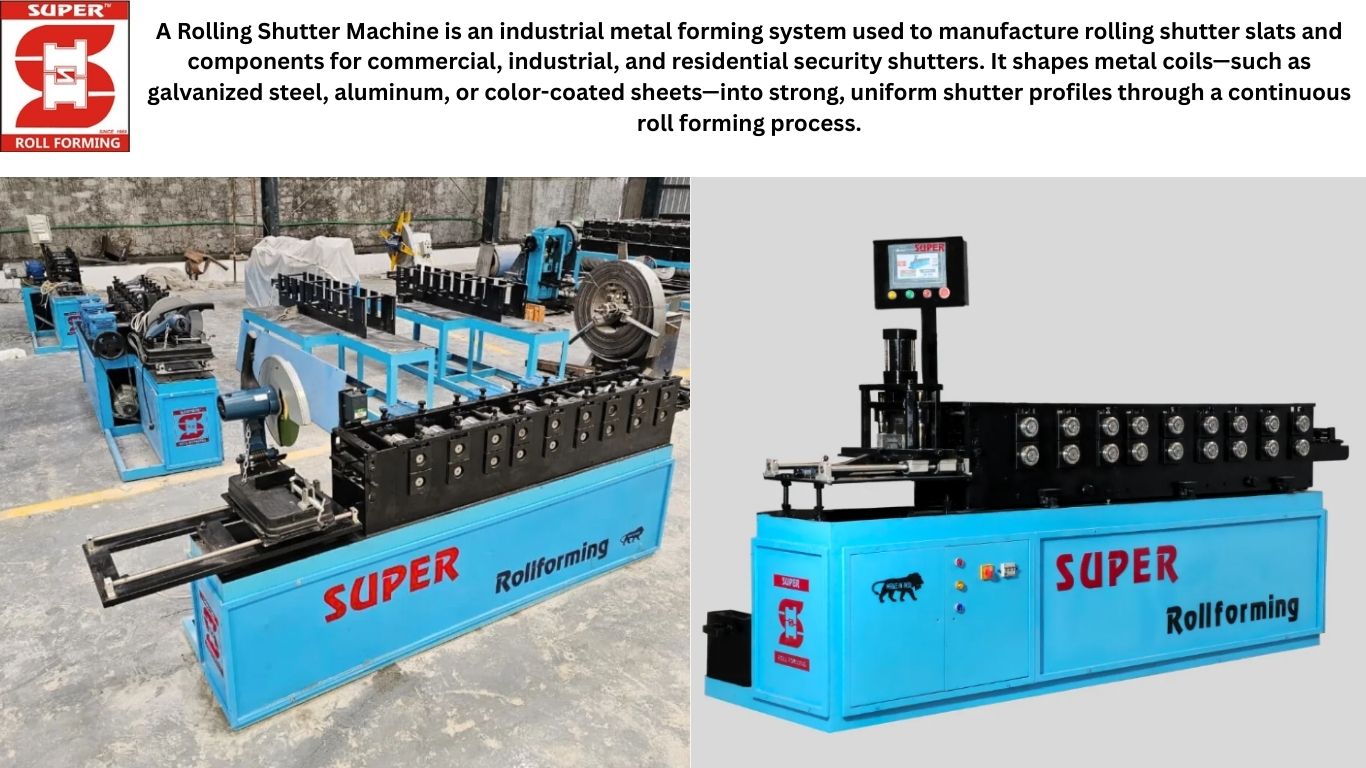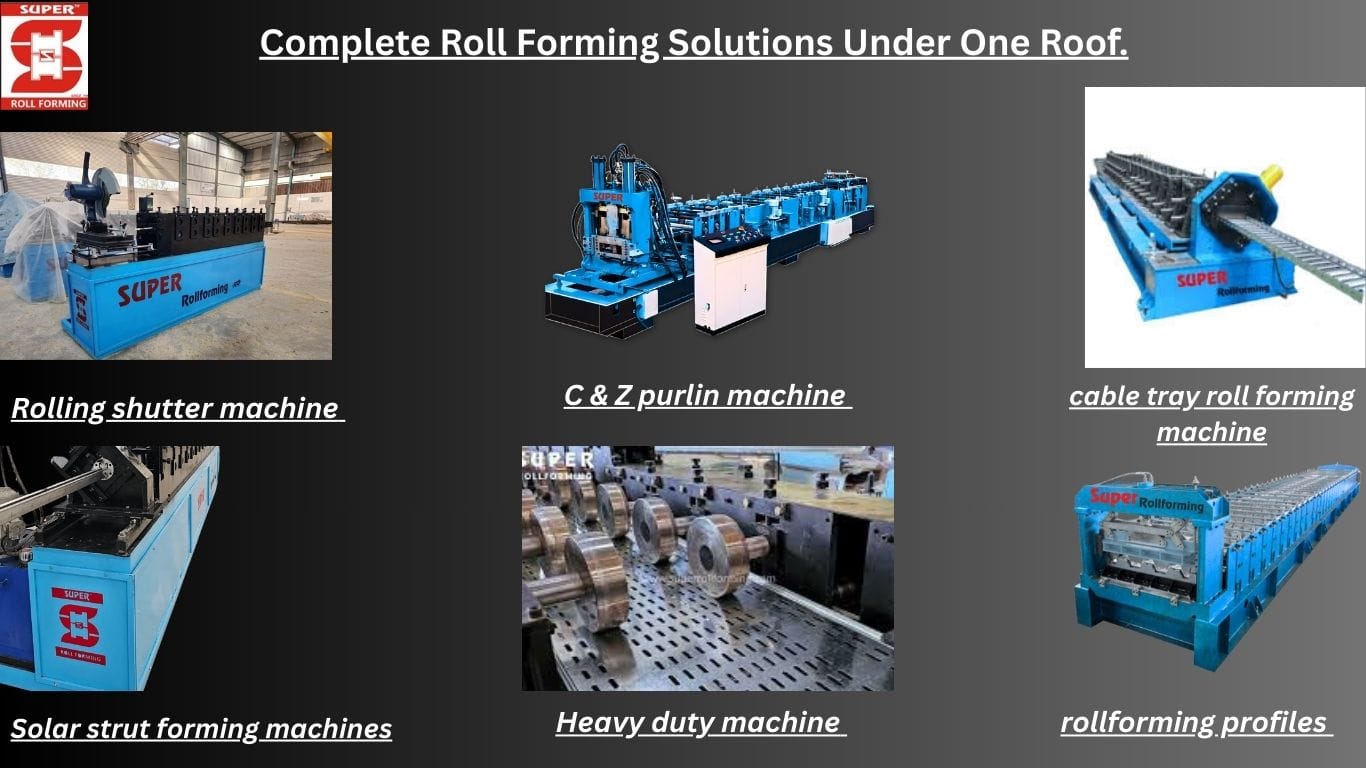Material selection plays a crucial role in the success of any manufacturing project, particularly in the roll-forming process. Choosing the right material impacts the performance, functionality, and cost of the final product. At Super Rollforming, a leading supplier of high-quality custom roll-formed products, we guide our customers through the material selection process, ensuring that the choice aligns with the specific needs and demands of their industry and application.
Two of the most common materials used in roll-forming are steel and aluminum. Each of these metals offers distinct advantages that make them suitable for various applications. In this blog, we will explore the physical properties, benefits, and key differences between steel and aluminum in the roll-forming process.
Physical Properties of Steel and Aluminum
Understanding the physical properties of these metals is essential for determining which one is best suited for your roll-forming project.
Strength: Steel generally offers higher tensile strength than aluminum, making it more suitable for applications that require durability. On the other hand, aluminum’s lower strength is advantageous in applications where flexibility and lighter materials are needed, such as in panels and enclosures.
Weight: Aluminum is significantly lighter than steel, with approximately one-third of its density. This makes it the ideal choice for industries like automotive and aerospace, where maintaining a lower weight is critical.
Corrosion Resistance: Aluminum naturally forms a protective oxide layer, providing it with superior corrosion resistance. Steel, however, can be treated with coatings or galvanized to enhance its corrosion resistance, making it suitable for outdoor applications with proper treatments.
Thermal Conductivity: Aluminum exhibits higher thermal conductivity than steel, making it an excellent choice for heat-exchange applications, such as in cooling systems.
Factors Influencing Material Selection
Several factors influence material selection in the roll-forming process. Careful consideration of these factors can help you make informed, cost-effective decisions.
Strength Requirements: Consider the required strength and durability of the final product based on its application. Steel is favored for projects needing maximum strength, while aluminum is better for applications where weight reduction and flexibility are important.
Corrosion Resistance: For environments prone to corrosion, aluminum’s natural resistance may be more beneficial. Alternatively, steel can be coated or galvanized to improve its performance in challenging conditions.
Cost: The cost of materials and their processing is another crucial factor. While steel may offer higher strength, aluminum’s lightweight properties can lead to savings in areas like shipping and transportation.
Applications of Steel and Aluminum in the Roll-Forming Process
Both steel and aluminum are widely used in roll-forming for various industries. Understanding the advantages of each material for different applications can guide better material selection.
Automotive Industry: Steel is commonly used in automotive body structures due to its strength. However, aluminum has gained popularity as manufacturers seek to reduce vehicle weight for better fuel efficiency.
Construction Industry: Steel is often used for structural components and load-bearing elements, while aluminum is preferred for decorative panels and enclosures where lightweight and corrosion resistance are priorities.
Renewable Energy Industry: In the renewable energy sector, steel’s durability makes it suitable for support structures, while aluminum is often used in solar mounting systems due to its lightweight and corrosion-resistant properties.
Retail Fixtures and Displays: Both materials have a place in the retail industry, with steel providing strength for heavy-duty applications and aluminum offering a sleek appearance for lightweight, versatile display solutions.
Super Rollforming’s Expertise in Material Selection
At Super Rollforming, we understand the significance of material selection in roll-forming. Our experienced team is dedicated to helping customers choose the right material for their specific projects.
Technical Consultation: We provide expert guidance on material selection based on your project’s unique requirements, helping you make informed decisions.
Custom Roll-Forming: Our advanced roll-forming capabilities allow us to work with both steel and aluminum, delivering high-quality, custom roll-formed products for a range of industries.
Fabrication Services: We offer secondary fabrication services, ensuring our roll-formed products meet the necessary strength, corrosion resistance, and cost criteria for your project.
Choosing between steel and aluminum in the roll-forming process is a critical decision that directly affects the performance and cost of the final product. By evaluating the physical properties, cost considerations, and application needs, you can make the best choice for your project. At Super Rollforming, we are committed to providing expert advice, high-quality custom roll-formed products, and tailored solutions to meet your specific needs.






